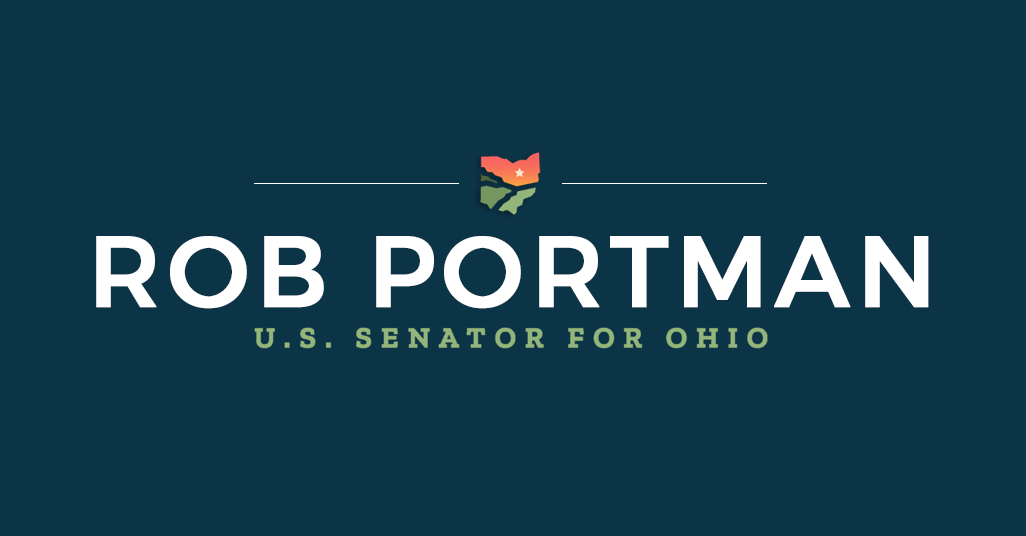Source: United States Senator for Ohio Rob Portman
October 22, 2021 | Press Releases
WASHINGTON, DC – Yesterday, U.S. Senators Rob Portman (R-OH) and Kyrsten Sinema (D-AZ) introduced the Veterans Pro Bono Corps Act, bipartisan legislation that will establish a five-year pilot program authorizing the U.S. Department of Veterans Affairs (VA) to award grants to medical residency and fellowship programs to provide independent, pro bono medical examinations and opinions to help eligible low-income veterans substantiate their VA compensation benefits claims.
“I am pleased to introduce this bipartisan legislation to provide low-income veterans with another option for obtaining high-quality medical evidence to substantiate their VA disability claims,” said Portman. “This bill will expand access to independent medical evaluations for veterans in rural and underserved areas so they can get the VA disability benefits they have earned.”
“Our pilot program expedites VA disability benefits by increasing the availability of medical examiners for Arizona veterans in need,” said Sinema, a member of the Senate Veterans’ Affairs Committee.
When a veteran files a VA disability compensation claim, they are usually scheduled for a VA Compensation and Pension (C&P) examination and/or medical opinion to substantiate the claim. There is currently a large inventory of pending VA C&P examination requests, which has resulted in claim processing delays and contributed to the current VA disability claim backlog. Moreover, the Government Accountability Office (GAO) has documented quality-control, timeliness, and oversight problems with VA disability examinations outsourced to private contractors, which currently comprise the vast majority of VA disability examinations.
Given these issues, some veterans submit medical examination reports or opinions prepared by treating clinicians or independent medical examiners to support their claims. However, most veterans cannot afford to obtain independent medical evaluations, and outside clinicians are often unfamiliar with the relevant legal criteria. This legislation will remove monetary barriers for low-income veterans to obtain high-quality, independent medical evaluations to supplement their VA benefits claims.
“We support efforts to increase veterans’ ability to obtain medical opinions to support their VA disability claims,” said Heather Ansley, Associate Executive Director of Government Relations, Paralyzed Veterans of America. “The pilot program directed by the Veterans Pro Bono Corps Act of 2021 has the potential to support our veterans through the claims process.”
“AMVETS supports the passage of the Veterans Pro Bono Corps Act of 2021,” said Joseph R. Chenelly, Executive Director, AMVETS. “As an organization that represents more than 75,000 veterans and veteran family members, we know the challenges veterans face when seeking medical examinations that lead to their ultimate disability rating. We know the financial costs that comes with paying private medical examiners to provide independent disability evaluations can be a burden that most veterans don’t want to take on. The Veterans Pro Bono Corps Act would provide veterans another option when seeking a medical examination.”
“Vietnam Veterans of America fully supports the Veterans Pro Bono Corps Act. This bill, when enacted, will greatly assist in reducing the current backlog of VA claims by providing veterans with outside medical examinations or opinions to substantiate their benefits claims – at no cost to the veteran,” said Felicia Mullaney, Director, Veterans Benefits, Vietnam Veterans of America.
This legislation is also endorsed by The American Legion.
Specifically, the Veterans Pro Bono Corps Act:
- Establishes a 5-year pilot program authorizing VA to award grants to medical residency and fellowship programs to provide pro bono, independent medical examinations and medical opinions to help low-income veterans substantiate VA disability benefits claims.
- Authorizes VA to establish a competitive process to select grantees and permits VA to give preference to grantees in rural or underserved areas.
- Requires grantees to screen veterans for income eligibility criteria
- Requires participants to undergo training that is substantially the same as or equivalent to training required for VA and VA-contracted examiners.
- Requires grantees to provide VA with an accounting of use and allocation of grant funds.
- Requires VA to provide Senate and House Veterans’ Affairs Committees with annual reports with data needed to evaluate program efficacy.
###
